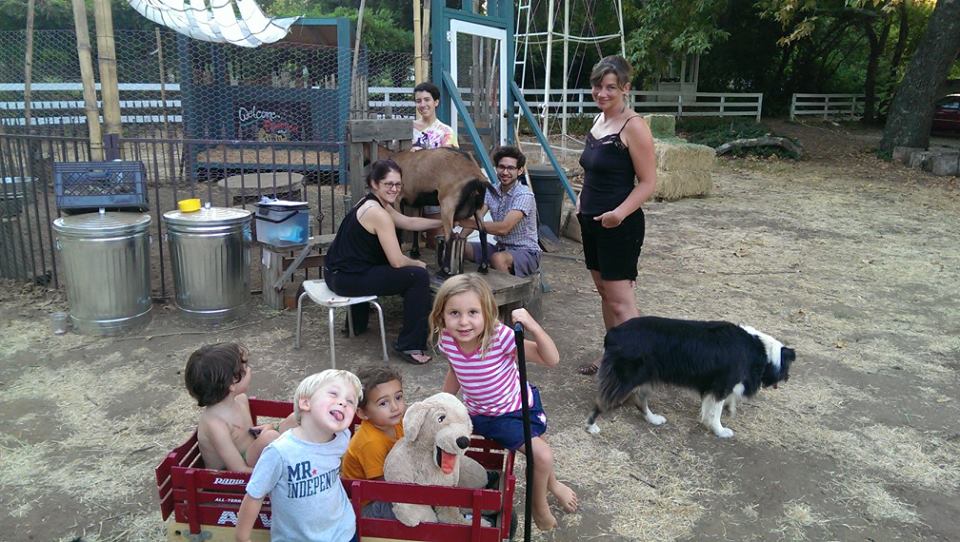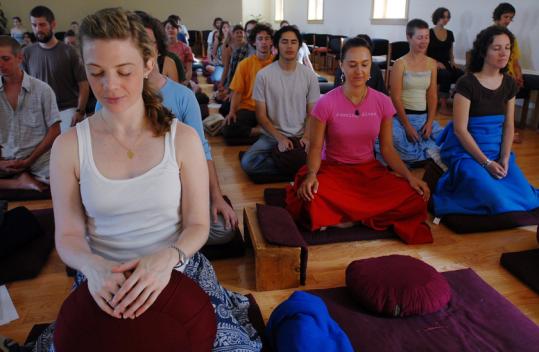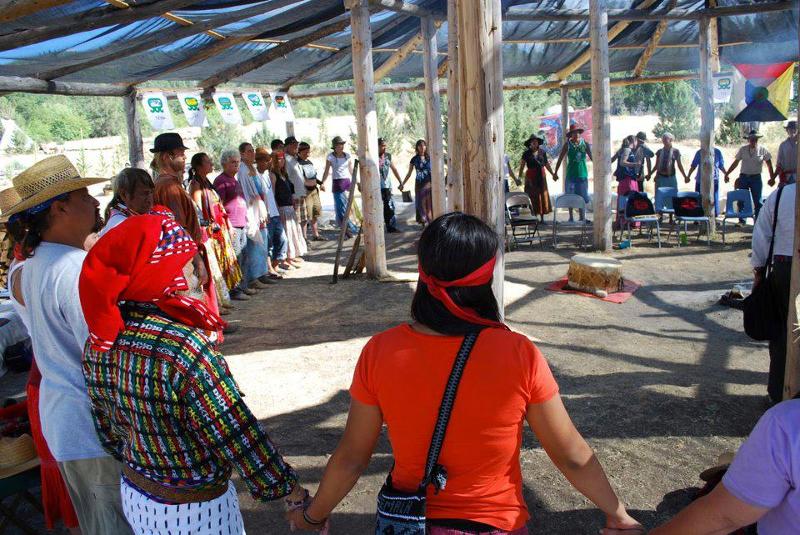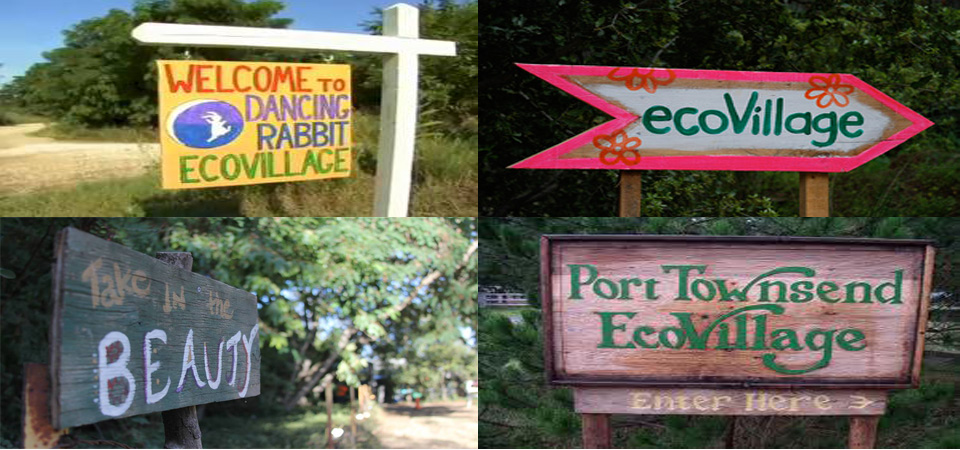Are you looking for more meaning in your daily life? Would you like more real connections with people, time to pursue your interests, and fresh food straight from the garden?
If so, living like an ecovillager in your city might do the trick. Humans have lived in small settlements for time eternal, and some psychologists say that the high levels of depression are due to a widespread disconnect from nature and community.
An ecovillage is a community committed to becoming more sustainable. The resources needed for life are sourced locally in a way that allows nature to continually supply humans. Ecovillages are also designed to maximize quality of life.
I believe there's a lot to learn from ecovillages. Below are seven ways to live like an ecovillager in your city:

Emerald Village Ecovillage in Vista, Califoria (near San Diego). Photo: Bryan Arturo
1. Build community. The best way to live like an ecovillager is to build a helpful, generous, loving community around you. Building great relationships with a group of diverse folks that share your values will open up endless possibilities. And if you help your friends live well, that will lead to deep bonds and much return help. Starting a gift circle in your community is a good way to get started.
2. Become more self-sufficient while reducing your living expenses:
-
Go carfree. Instead, walk, bike, rideshare, car share, and use public transportation to get around. You'll save thousands and smartphones make it easy to manage all the options. Check here for how to get started on the carfree life.
-
Start growing some of your own food. You can do that on your balcony or at a local community garden. To find a community garden, go to the American Community Garden Association. If there isn't a community garden near you, start one or share a vegetable garden with a neighbor.
-
Learn some old time, practical skills like canning, yogurt making, welding, or carpentry. Check out Skillshare, Meetup’s skillsharing section, or start your own skillshare. For tools, see Wikipedia's list of tool libraries here or start your own tool library.
-
Experiment with making your own clothing, Burdastyle can help. Or go to or host clothing swaps.

A permaculture course at West Lexham, UK. Credit: West Lexham.
3. Start using sharing economy networks to save money, learn about yourself, and meet like-minded folks:
-
See our comprehensive guide to sharing services here.
-
Use Couchsurfing, Warm Showers (for cyclists), AirBnB when staying in new places. Use mealsharing platforms whenever possible, or share your left-overs.
-
Use WWOOF, GrowFood, and soon Project Nuevo Mundo to exchange time for meaningful experiences, new skills, room and board.
-
Use Dhamma, a Vipassana meditation network of globally linked centers to attend “pay-it-forward” ten-day long meditation courses that help you understand and moderate your fears, desires, and consumer impulses. After attending your first course, volunteer for the next retreat.
- Sign up for or create a local timebank or currency. Exchanges use different websites and systems so search for your town’s name plus the keywords timebank, time exchange, LETS, barter or local currency.

Meditation retreat at the Insight Meditation Center in Barre, Massachusetts. Credit: Christine Peterson.
4. Connect to local sustainability projects and maker spaces
-
Use Wiser Earth and Transition Network to find local sustainability projects. If you don't find any, start one!
-
Search the makerspace and hackerspace directories to find DIY projects, people, places near you.
-
Visit Permies.com and join a conversation about permaculture.
5. Learn and practice communication skills.
-
Learn to listen. Allow others to express themselves without judging or helping them. Empathize.
-
Explore holocracy and non-violent communication for advanced communications skills. I recommend Holocracy.org’s post “Differentiating Organization & Tribe.”
- Learn how to make better decisions together.
A community meeting at Atlantida Ecovillage in Cajibio, Columbia. Credit: Ecoatlandia.
6. Visit an ecovillage and bring what you learn back to the city. Make an extended stay in an indigenous community or an ecovillage where local production and consumption is the norm, and understand closed-loop living systems first-hand. Check out organizations like Ecuador’s Yanapuma.
-
Decide what kind of skills you would like to learn, and then find communities where those skills are prevalent (examples: healing with medicinal plants, crafting, hunting, etc.). There is currently no single database of communities that accept homestay, but Project Nuevo Mundo is working on one!
-
Explore Living Routes, a program to study abroad in sustainable communities.

Annual Wisdom Kepper & Youth Council held at Deer Mountain. Photy by: Earth People’s United.
7. Join the Project Nuevo Mundo movement to connect with ecovillages and find transformational experiences. And please support my community's educational Earth Odyssey Bus Tour campaign.









